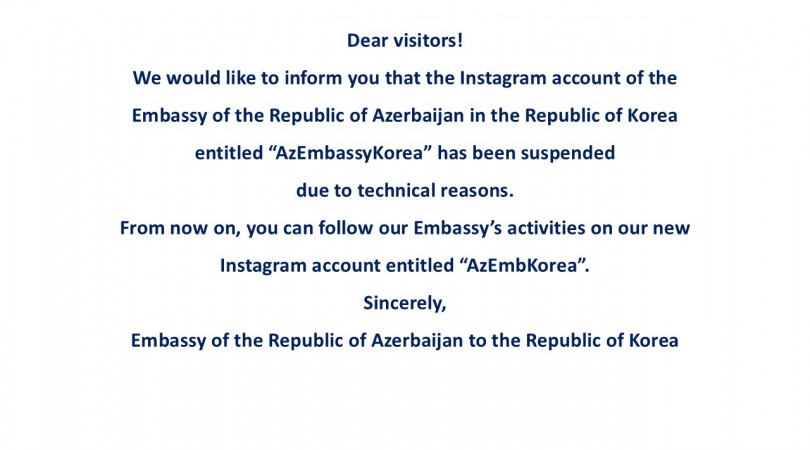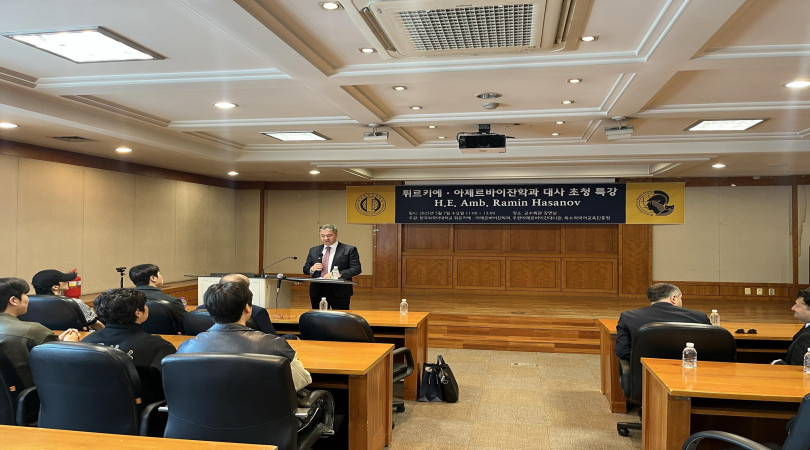Azerbaijan commemorates 29th anniversary of the Black January
On January 20, 1990, Azerbaijan's capital city of Baku was invaded by 26,000 Soviet troops, which, at the order of the Soviet leader Mikhail Gorbachev and his Politburo, stormed the city and began shooting indiscriminately into the peaceful demonstrators. Hundreds of civilians were killed, including children, women and elderly; people of different ethnic and religious backgrounds, including Muslim, Christian and Jewish. The pretext was a massive popular uprising in Baku, calling for Azerbaijan's independence from USSR. This mass killing entered Azerbaijan’s history books as the ‘Black January’ tragedy. The violence used by former Soviet Army aiming to destruct the martial spirit of the nation was out of proportion to the intention of freedom and independence
The Soviet army also attacked the state TV building, in order to cut off the power supply for preventing the dissemination of news to the international community.
As a result of the crackdown operation of the large contingent of Soviet Army, 147 unarmed peaceful civilians were killed, around 800 people were wounded, 841 men were illegally arrested and 5 are still missing. And also, 200 houses and apartments, 80 automobiles, including ambulance cars, the state and personal property were ransacked and burnt by Soviet soldiers.
The operation conducted by Soviet troops was a distinct and harsh violation of Final act of Conference for Security and Cooperation in Europe of 1975, Final document of Viennese meeting of CSCE of 1989, Declaration on protection of women and children in emergency and armed conflicts of 1974, Convention on child’s rights of 1989, acting conventions regulating waging of war, in particular, 4th Hague Convention about the rule and customs of land war of 1967.
Right after the tragedy, the extreme session of the Supreme Council of the Azerbaijani SSR held on January with the purpose of evaluation the January events. The session adopted the Decree of the Supreme Council of the Azerbaijani SSR “On cancellation of the state of emergency in Baku city”, and also the appeals to the USSR Supreme Council, Supreme Councils of union republics, parliaments of all countries of the world.
The Black January event was the obvious display of the ability of Azerbaijani people to reserve the longstanding historical heroism and to resist the cruel attacks for the sake of the freedom and independence of their motherland at the cost of losing their lives.
The Azerbaijani people buried their martyrs, who sacrificed their lives on January 20th for the independence of the country, in the Mountain Park, the highest spot in Baku, which was later named “Martyrs’ Avenue”. Since 1994, January 20th has been commemorated as National Mourning Day. The Martyrs’ Avenue is a most sacred place for every Azerbaijani. Every year millions of Azerbaijanis visit Martyrs’ Avenue and lay carnations on the graves. This ceremony begins in the early morning when the President of Azerbaijan and representatives of foreign missions lay wreaths at the eternal flame.
On 20 January 1990, though the Azerbaijani people suffered military, moral and political aggression, they displayed their ability to maintain the traditions of historical heroism and resist the cruelest attacks for the sake of the freedom and independence of the motherland, even becoming martyrs. The courageous sons and daughters of the motherland perished on 20 January 1990 while defending the freedom and independence of Azerbaijan and by their bravery made a vivid history in the chronicle of heroism of our country.
Embassy of the Republic of Azerbaijan
to the Republic of Korea



















